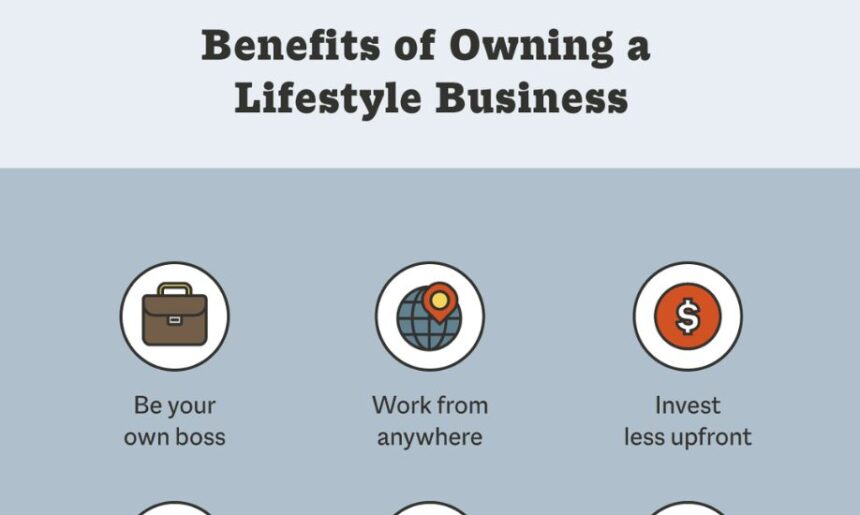What is the Definition of a Lifestyle Business?
The definition of a lifestyle business refers to a business model designed to sustain a particular level of income and allow its owner to enjoy a specific lifestyle. Unlike traditional startups or corporations focused on aggressive growth and high profit margins, lifestyle businesses emphasize balance, flexibility, and personal fulfillment. This model prioritizes the alignment of professional endeavors with personal goals and values.
Lifestyle businesses are usually small-scale ventures driven by personal passion or interest. They are often operated by individuals or small teams and designed to be sustainable without requiring constant scaling. These businesses provide the owner with autonomy over their schedule and decisions, enabling them to prioritize quality of life.
Characteristics of a Lifestyle Business
Owner-Centric Operations
At the heart of the definition of a lifestyle business is its owner-centric focus. The business is tailored to the founder’s personal goals and desires rather than external market pressures. This focus ensures the owner maintains control over the pace and direction of the enterprise.
Work-Life Balance
One of the most attractive aspects of a lifestyle business is its emphasis on work-life balance. Entrepreneurs in this model aim to design a schedule that accommodates personal priorities, such as family, hobbies, or travel. The goal is to avoid the burnout often associated with high-growth businesses.
Flexibility
Flexibility is a hallmark of the definition of a lifestyle business. Whether it’s working from a home office, managing a business remotely while traveling, or setting unique operating hours, flexibility allows owners to create a work environment that suits their lifestyle.
Limited Growth and Scalability
While many businesses strive for rapid growth, lifestyle businesses deliberately limit scalability. The focus is on achieving sufficient income to support the owner’s desired way of life without sacrificing the quality of their day-to-day experiences.
Examples of Lifestyle Businesses
Freelancing
Freelancers epitomize the definition of a lifestyle business. Writers, graphic designers, photographers, and consultants often work independently, taking on projects that align with their interests and schedules.
Online Content Creation
Bloggers, podcasters, and YouTubers frequently build businesses around their passions. By monetizing their content through sponsorships, ads, or products, they create a revenue stream that supports their chosen lifestyle.
E-Commerce Stores
Running an online store on platforms like Etsy or Shopify allows individuals to sell handmade goods, digital products, or curated collections. These stores often require minimal physical infrastructure, making them ideal for lifestyle entrepreneurs.
Coaching and Online Courses
Professionals who create and sell online courses or offer one-on-one coaching services often operate lifestyle businesses. This model allows them to share their expertise while maintaining control over their workload and schedule.
Advantages of a Lifestyle Business
Autonomy
One of the primary benefits highlighted in the definition of a lifestyle business is the autonomy it offers. Owners have full control over decision-making, including how much they work and what projects they undertake.
Pursuit of Passion
Lifestyle businesses often stem from hobbies or personal interests. This alignment ensures that the work is both enjoyable and meaningful.
Financial Sustainability
While these businesses may not aim for explosive profits, they provide enough income to support the owner’s desired lifestyle. By keeping overhead costs low, many lifestyle businesses achieve financial sustainability quickly.
Time Freedom
The flexibility to set one’s own schedule means owners can allocate their time as they see fit. This freedom is especially appealing to those prioritizing family, travel, or other personal pursuits.
Challenges of a Lifestyle Business
Income Limitations
One challenge within the definition of a lifestyle business is the potential for limited income. By intentionally avoiding significant growth, revenue streams may plateau, making it difficult to handle unexpected expenses or investments.
Dependence on the Owner
Since these businesses often revolve around the owner’s skills and efforts, the business may struggle during periods of illness, absence, or personal challenges.
Market Volatility
Lifestyle businesses targeting niche markets may face risks from economic fluctuations, changing consumer trends, or increased competition.
Difficulty in Scaling
For owners who later wish to expand, the structure of a lifestyle business may make scaling challenging, as the initial design often lacks the infrastructure for significant growth.
Building a Successful Lifestyle Business
Identify Your Passion
The definition of a lifestyle business underscores the importance of aligning your venture with your personal interests. Reflect on hobbies or skills that could be monetized.
Keep Overheads Low
Start small and manage expenses wisely. A lifestyle business’s sustainability often depends on its ability to generate profit with minimal investment.
Prioritize Your Goals
Be clear about what you want to achieve with your lifestyle business. Whether it’s financial independence, more family time, or freedom to travel, these goals should guide your decisions.
Use Technology
Leverage digital tools and platforms to streamline operations. Automation and online management tools can reduce your workload, allowing more time for personal priorities.
Build a Loyal Customer Base
Strong customer relationships are crucial for the stability of a lifestyle business. Focus on providing excellent service and creating a community around your brand.
Is a Lifestyle Business Right for You?
The definition of a lifestyle business highlights its suitability for individuals seeking autonomy, flexibility, and balance. If you value control over your time and are willing to trade rapid growth for personal fulfillment, this business model may align perfectly with your aspirations. However, it requires careful planning and realistic expectations to ensure long-term success.






